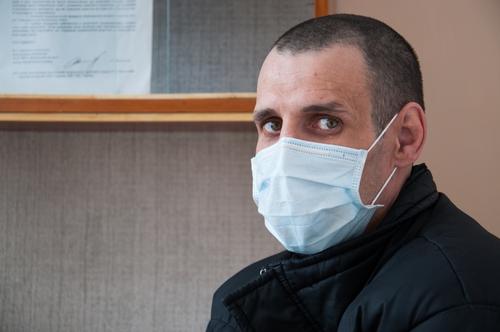Lack of political commitment will jeopardize momentum for stronger TB action across the region
Geneva – 24 March 2015 – One week ahead of the first-ever Eastern Partnership Ministerial Conference on Tuberculosis and Multidrug Resistant Tuberculosis in Riga, Latvia, on 30/31 March, Médecins Sans Frontières (MSF) expressed great concern over news that European Health Commissioner Andriukaitis is not attending the meeting and that fewer than a quarter of invited countries are sending Health Ministers or Deputy Health Ministers to the meeting.
MSF urges leadership in all European countries to commit to sending high-level political representation to this critical meeting.
Some of most alarming rates of drug-resistant tuberculosis (DR-TB) in the world are found in the European region, including in countries where MSF is treating DR-TB such as Armenia, Georgia, Russian Federation and Ukraine. These deadly strains of the disease are extremely arduous and expensive to treat, with treatment success rates only around 50%; meanwhile, globally just one in five people with DR-TB are properly diagnosed and treated, leaving the disease to ravage people’s lives and their communities.
“As long as countries in the European region are still struggling to contain serious drug-resistant TB epidemics, there’s no excuse for a political retreat from TB at any level,” said Helle Aagaard, EU policy advisor for MSF’s Access Campaign. “With drug-resistant TB recognized as a major public health threat, it’s more urgent than ever that high-level political leaders, including the European Commissioner and all EU Health Ministers, take action to close the implementation gap between the proven best policies and the actual practices of TB programmes, and to ensure funding gaps are filled both for national TB programmes and in the area of TB research and development.
In a recent report, Out of Step: Deadly Implementation Gaps in the TB Response, MSF highlighted several key areas in which the current TB response is not adequately addressing drug-resistant forms of TB. Many existing policies contribute to the amplification and spread of resistant forms of the disease, ultimately causing unnecessary deaths. In order to break this status quo, which results in DR-TB going undiagnosed and untreated, MSF is urging European leaders across the region to make a political commitment to upgrade failing policies, replacing them with proven ones, such as rolling out decentralised, community-based care, as well as committing to significantly enhance research and development efforts for improved treatment.
“We need countries to take urgent action to end unnecessary deaths from drug-resistant TB in the region, and this can’t happen without political support at the highest levels,” said Aagaard. “We know what needs to happen: we need a Europe-wide action plan to defeat TB with political and financial commitments to scale up testing and treatment for people with DR-TB, implement optimal models of care, and fund development of new and dramatically improved treatment regimens that are effective against all forms of TB.”
Without high level participation and political commitment, an opportunity for the European region to be a leader in the global fight against TB will be lost.



